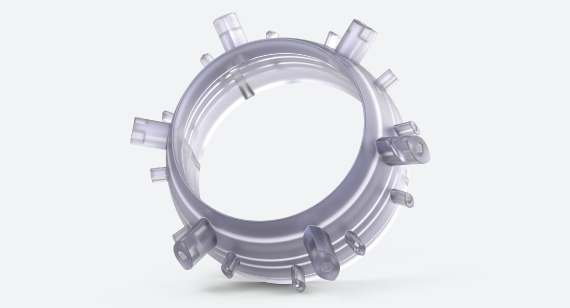Do you need to use an engineering plastic for your application that has high UV resistance? With many specialty plastics on the market today, you can find one with optimal performance for your project. But did you know that different engineering plastics offer varying levels of ultraviolet (UV) protection and how important this is in outdoor applications?
This blog post talks about the different kinds of engineering plastics and how UV stable they are. We look at the properties and shapes of each type of plastic and compare them to help figure out which type will work best for a given application.
Overview of Engineering Plastics and Their UV Resistance
Engineering plastics are a class of high-performance plastics that are used in various industries due to their unique properties such as strength, durability, and cost-effectiveness. UV resistance is another important characteristic of these plastics, as they are often exposed to harsh outdoor environments.
UV light can cause significant damage to plastics, leading to degradation and discoloration over time. However, engineering plastics are specifically designed with UV inhibitors and stabilizers to protect them from UV damage, ensuring their longevity and functionality.
Whether used in automotive parts, outdoor signage, or electronic enclosures, engineering plastics continue to be an essential material for industries that need high-performance, UV-resistant plastic solutions.
Exploring Different Types of UV Resistance in Engineering Resins
Engineering resins are incredibly versatile materials, used to create everything from automotive components to medical devices. However, one of the challenges that engineers face when designing with these resins is the need to consider their UV resistance. Exposure to sunlight can cause certain types of resins to degrade, reducing their effectiveness over time.
Fortunately, there are many different types of UV-resistant engineering resins available, each with its own unique set of properties and benefits. By exploring these different types of resins and understanding how they can be used in various applications, engineers can create durable, long-lasting products that will perform well even in harsh outdoor environments.
Evaluation of the Different Types of UV Protection for Specific Applications
UV protection is essential for anyone spending time outdoors, but not all forms of protection are created equal. When it comes to specific applications, understanding the different types of UV protection is key to finding what will work best for you. For example, if you are an athlete, you may need sweat-resistant sunscreen that can withstand intense physical activity.
Alternatively, if you work in construction or spend a lot of time near reflective surfaces, you may need UV protection that goes beyond just sunscreen and includes clothing or eyewear. By evaluating the different types of UV protection available, you can make an informed decision and ensure that you are protecting yourself to the best of your ability.
Tips for Improving UV Resistance in Engineering Resins
As engineers, we know that creating durable products is essential, but sometimes ensuring that our materials can withstand harsh UV light can be challenging. Luckily, there are several tips you can follow to improve the UV resistance of engineering resins. One of the most effective ways to increase UV resistance is by adding UV stabilizers to the resin formulation.
Another method is to select resins that have been specifically designed to withstand UV radiation. Additionally, choosing lighter colors for your products can also help reduce the effects of UV light over time. By implementing these tips and working with knowledgeable resin suppliers, you can ensure that your products not only perform well but also maintain their appearance for years to come.
Benefits of Using UV Resistant Engineering Resins
UV-resistant engineering resins are becoming increasingly popular in various industries, and for good reason. These innovative materials provide a plethora of benefits that simply cannot be matched by traditional resins. One of the most significant advantages of using UV-resistant engineering resins is their ability to withstand harsh outdoor conditions, including intense sunlight and extreme temperatures.
This makes them ideal for use in outdoor applications such as automotive parts, construction materials and decorative items for your backyard. Additionally, these resins are highly durable, ensuring that they will last for years to come. Overall, if you want high-quality, long-lasting materials that can stand up to the toughest conditions, UV-resistant engineering resins are definitely worth considering.
Future Prospects for Engineering Resins and Their UV Resistance
As technology continues to advance, so too does the demand for materials that can withstand the elements. This is where engineering resins come into play. With their strength and durability, they are becoming increasingly popular in industries such as automotive, aerospace, and medical.
However, as exposure to UV radiation can weaken these materials over time, there is a need for improved UV resistance. Fortunately, researchers are currently exploring various methods to enhance the UV stability of engineering resins. From the addition of UV stabilizers to the development of new polymer blends, the future looks bright for these versatile materials.
Engineering resins have come a long way in terms of UV resistance. While there are still limitations to their performance under certain extreme conditions, they offer excellent protection against everyday exposure to the sun.
The improved properties make engineering resins ideal for a variety of applications and are now being used in furniture production, car components, construction materials, and more.
With the right formulations and techniques, engineers can maximize the benefits of using UV-resistant engineering resins while ensuring that certain applications can thrive in outdoor environments.
Ultimately, UV protective engineering resins will help new designs reach wider markets and may even improve existing ones. We look forward to continuing research on this exciting new material and its future possibilities!


